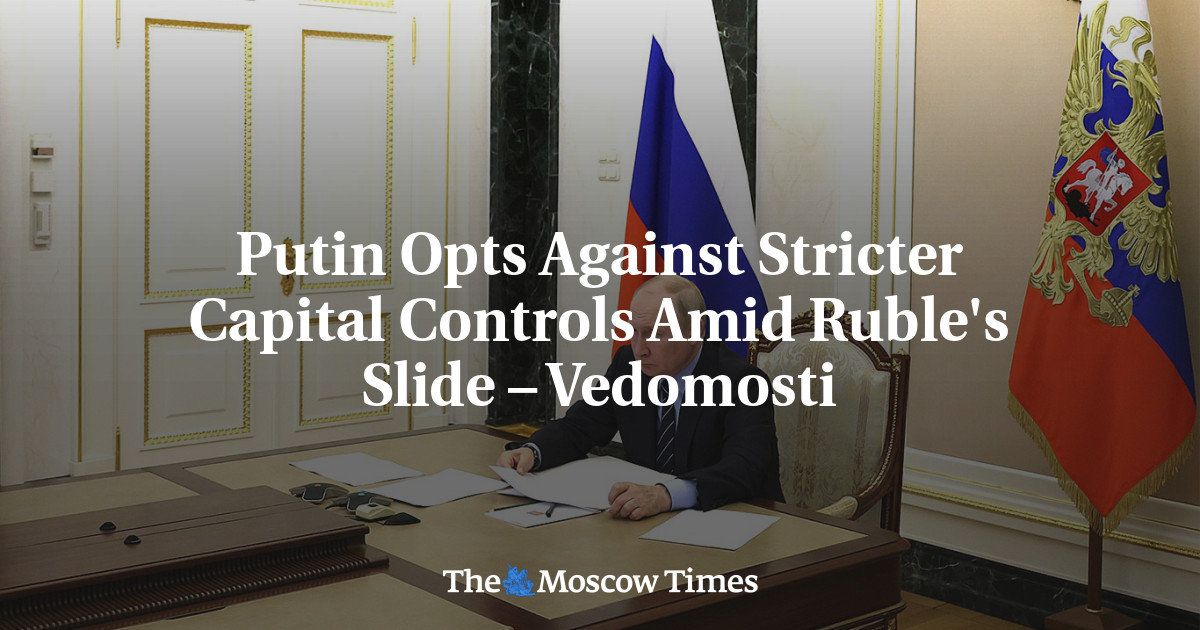
Russia will not tighten capital controls in response to a weakening ruble, the Vedomosti business daily reported Thursday, citing two anonymous sources close to the Russian government.
President Vladimir Putin met with cabinet members and Central Bank governor Elvira Nabiullina on Wednesday to hear proposals on converting foreign currency earnings held by exporters into rubles.
The exporters had “informally” agreed to raise foreign currency sales, allowing the government to avoid the “last resort” option of imposing capital controls, according to Vedomosti.
The reported agreement comes after the ruble slid past 100 against the U.S. dollar this week, forcing Russia’s Central Bank to hike interest rates to 12% in an emergency measure.
The rate hike appeared to have a limited effect, forcing the Kremlin to consider bringing back the compulsory sale of foreign currency revenues by exporters.
Days after Moscow’s February 2022 invasion of Ukraine, Putin ordered exporters to hold at least 80% of their revenue in rubles as part of some of Russia’s strictest currency controls in decades. He lifted the requirements in June 2022.
Those capital controls were seen as a rollback of years of economic liberalization that Putin himself had once championed.
According to Vedomosti, Russia’s government will monitor the exporters’ compliance with the new agreement to voluntarily raise foreign currency sales.
Mandatory sales of export proceeds may become “inevitable,” as could greater tax burdens, should the ruble continue sliding, one source told Vedomosti.
An update to Wednesday’s decision is possible “at any moment,” Reuters quoted an anonymous high-level source reacting to Vedomosti’s report.
The ruble settled at just under 93 against the dollar on midday Thursday, data from the Moscow Stock Exchange showed.